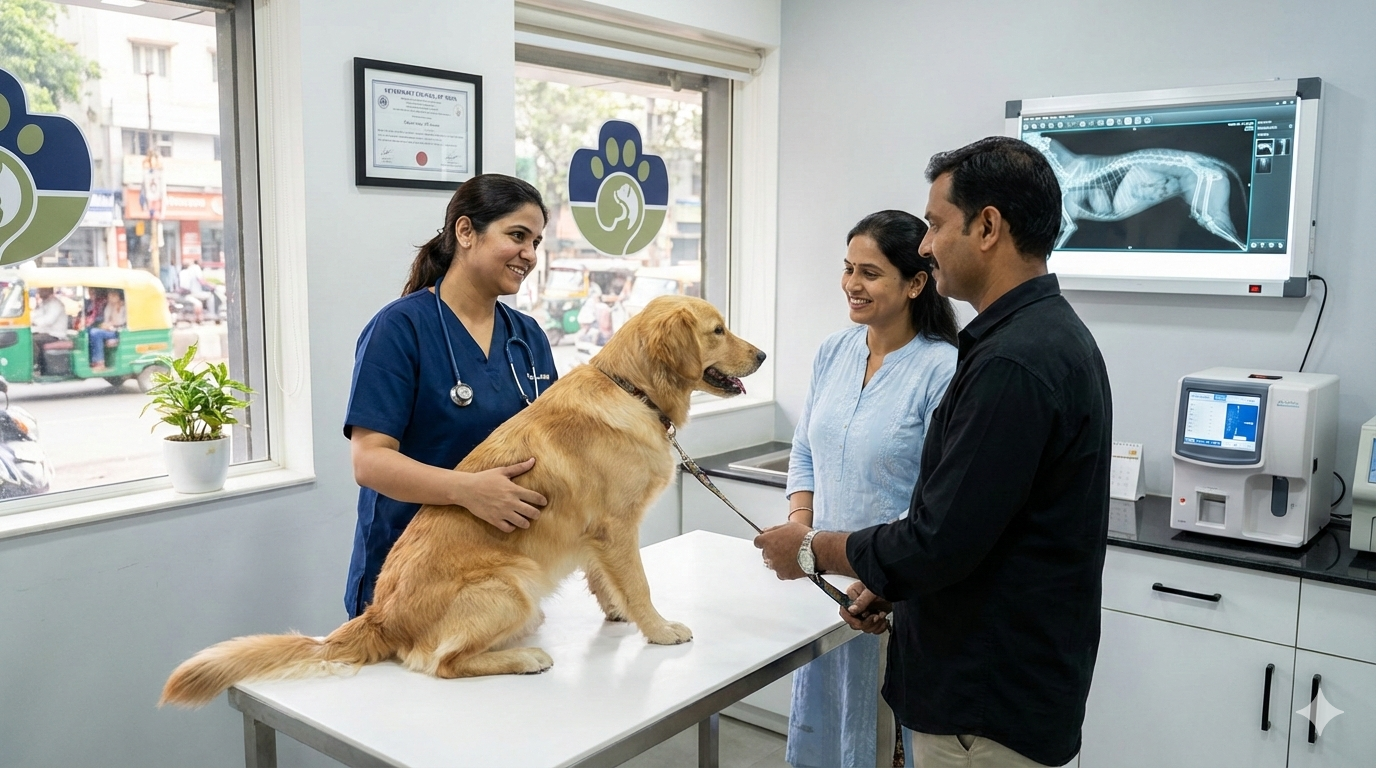Choosing a veterinary college is a monumental decision that can shape your entire career. It's an exciting time, filled with dreams of healing animals and contributing to public health. However, many aspiring veterinarians fall into common traps that can lead to regret or a less-than-ideal academic experience.
To help you navigate this crucial period, here are the top 5 mistakes students often make when selecting a vet college, and how you can avoid them:
1. Focusing Solely on Rankings

This scatter plot illustrates a weak correlation between national rankings and student-reported satisfaction scores across various hypothetical vet colleges.
It's natural to be drawn to the top-ranked schools, and while prestige can be a factor, it shouldn't be the only factor. A college's overall ranking might not reflect its strengths in areas that matter most to your specific career goals.
How to avoid this mistake:
- Look beyond the numbers: Research the curriculum, faculty expertise, and specific programs offered. Does the college excel in large animal medicine if that's your passion? What about research opportunities, exotic animal care, or public health?
- Consider your learning style: Some top-ranked schools might have very large class sizes or a highly competitive environment that doesn't suit everyone.
- Visit the campus (if possible): Get a feel for the atmosphere, talk to current students and faculty, and see if you can envision yourself thriving there.
2. Underestimating the Importance of Location and Cost of Living

This stacked bar chart breaks down the estimated annual cost, comparing tuition with living expenses for colleges in different environments.
The cost of tuition is a significant consideration, but many students overlook the equally important cost of living in the college's location. Additionally, the environment itself can greatly impact your well-being and study habits.
How to avoid this mistake:
- Budget comprehensively: Factor in rent, utilities, food, transportation, and personal expenses for the entire duration of your studies, not just tuition.
- Research the surrounding area: Do you prefer a bustling city, a quiet rural setting, or something in between? Consider access to amenities, part-time job opportunities (if needed), and recreational activities.
- Think about clinical experience: Does the location offer diverse animal populations and clinical settings relevant to your interests?
3. Neglecting to Research Clinical Opportunities and Specializations

This radar chart compares the clinical focus areas of three hypothetical universities, highlighting their differing strengths.
A strong DVM program provides extensive hands-on clinical experience. Some colleges might have excellent research facilities but limited diverse clinical rotations, or vice-versa.
How to avoid this mistake:
- Inquire about clinical rotations: How varied are they? Are there opportunities for externships or preceptorships in specialized fields?
- Look into teaching hospitals and clinics: What kind of cases do they handle? What is the student-to-case ratio?
- Identify faculty specializations: If you're interested in a niche area like zoological medicine or veterinary forensics, seek out schools with faculty who are experts in those fields and actively involved in relevant research or practice.
4. Not Considering the Program's Culture and Support Systems
The culture of a veterinary college can significantly impact your mental health and academic success. A highly competitive or unsupportive environment can be detrimental, while a collaborative and nurturing one can help you flourish.
How to avoid this mistake:
- Talk to current students: They can offer invaluable insights into the program's culture, the level of support from faculty, and the availability of student services (counseling, academic advising, career services).
- Look for mentorship opportunities: Does the college have programs that connect students with mentors?
- Assess student well-being initiatives: Given the demanding nature of veterinary medicine, what resources are available for stress management and mental health support?
5. Failing to Plan for Post-Graduation Opportunities
While getting into vet school is the immediate goal, it's crucial to think about what comes next. Some colleges have stronger alumni networks, career placement services, or pathways to specific residencies or internships.
How to avoid this mistake:
- Research career services: What kind of support do they offer for job placement, resume building, and interview preparation?
- Explore alumni networks: How active and supportive is the alumni community? Can they provide connections and mentorship?
- Consider residency and internship match rates: If you're aiming for a specialization, research the college's success rate in placing graduates into competitive internships and residencies.
By taking a holistic approach to your college search, looking beyond the obvious, and asking the right questions, you can make an informed decision that sets you up for a fulfilling and successful career in veterinary medicine. Good luck!







